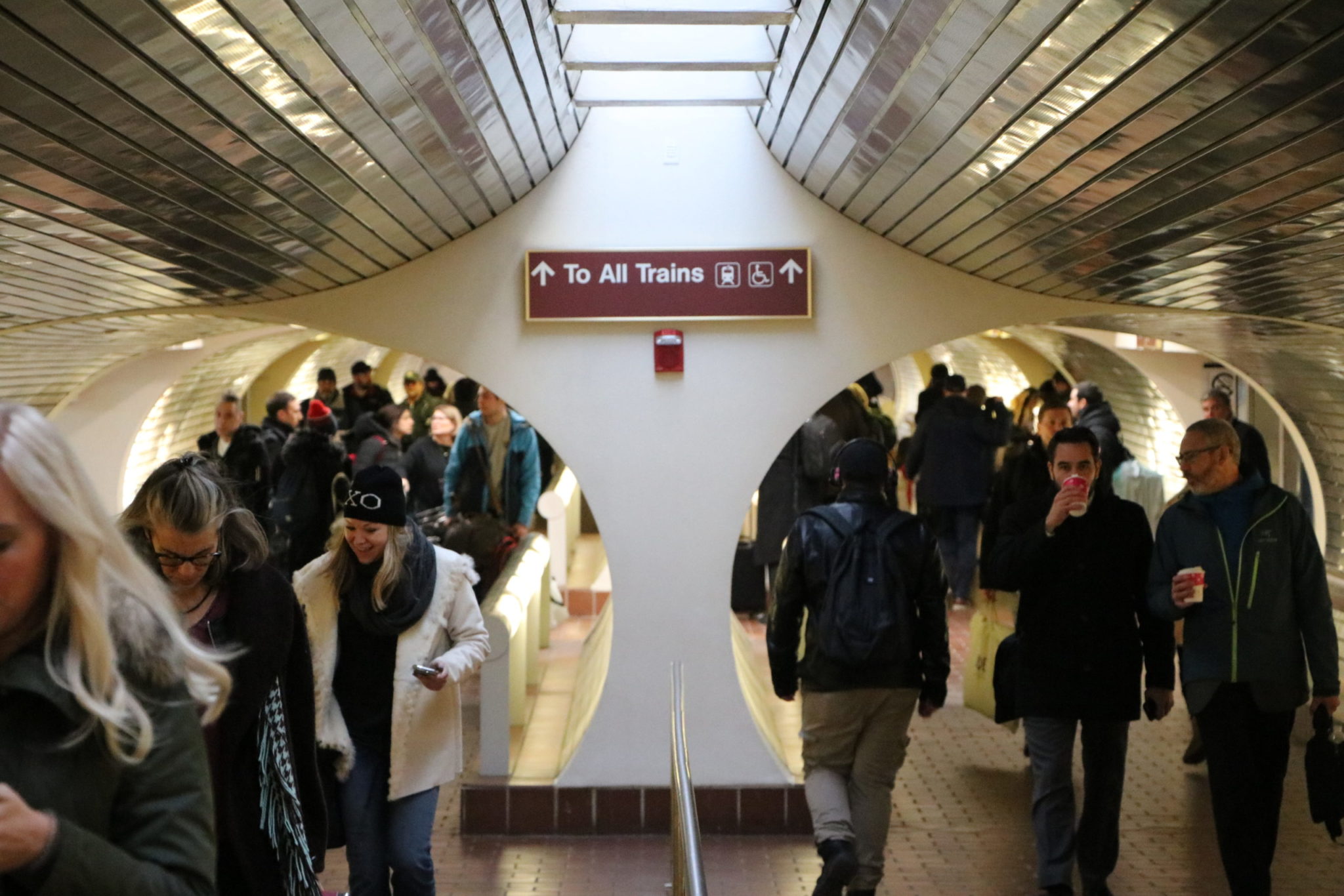What’s next for New Haven’s economy?
New Haven and Connecticut's economic outlook heading into 2022 Online Subhead: State and city leaders discuss some of the challenges and opportunities for the economy heading into the new year.

Vaibhav Sharma, Photo Editor
Despite the ongoing pandemic and a shrinking labor force, New Haven lawmakers are optimistic about the city’s economic prospects this year.
Since the start of the pandemic, the Elm City’s unemployment rate has steadily declined from just above 10 percent in May 2020 to just above four percent at the end of 2021, according to the Bureau of Labor Statistics. During the past year, the city saw economic gains, like its credit rating being upgraded to Positive. But other economic reports, like that one published by Connecticut Voices for Children, predicted a prolonged and challenging economic recovery from the pandemic.
At a panel posted by the Hartford Business Journal on Jan. 19, David Lehman, commissioner of the Connecticut Department of Economic and Community Development and the governor’s senior economic advisor, expressed confidence that the state has the tools to effectively combat COVID-19, allowing the economy to continue its recovery.
“We know so much more about this disease and how to manage it,” Lehman said. “Our knowledge base now is so much greater, and if we look at the data we see how important vaccines are. Between two out of three or three out of four of the people in our hospitals really consistently have been unvaccinated. The vaccine is by far the biggest mitigant, and that’s one of the reasons we are not talking about restrictions and we are making sure the economy stays open.”
In the short term, the Omicron variant will continue to negatively impact small businesses and restaurants, President and CEO of the Greater New Haven Chamber of Commerce Garrett Sheehan said.
To help restaurants get through this month, Sheehan encouraged everyone to support restaurants and small businesses in New Haven. City officials have echoed Sheehan’s sentiments, and the city hosted New Haven Restaurant Week last October.
In addition to the pandemic, Lehman discussed the state budget and outlook for employment heading into 2022. The Connecticut state budget had a more than $1 billion surplus in 2021, more than twice the surplus the year before. These gains have allowed the state to make payments toward unfunded pension liabilities, a long term challenge Lehman says the state will be able to manage. Regarding employment and the workforce, Lehman was also optimistic.
“2020 was a record year for business formation, only to be exceeded by 2021,” he said. “The great resignation, people doing new things, different things, businesses adjusting or being forced to adjust, I think all that is contributing to this.”
This shakeup that occurred during the pandemic, which led to the creation of new businesses, excited Lehman. “Small businesses, startup businesses, they are some of the biggest hirers,” he said. “This is a real positive when I think of employment and economic growth going forward.”
At the panel, Chief Economist and Chief Investment Officer at NBT Wealth Management Kenneth Entenmann raised some concern regarding labor shortages. According to Entenmann, there are currently about 11 million job openings in the United States, and the number of workers who are unemployed or who dropped out of the workforce during the pandemic is about eight million. However, some economists suggest that the past year’s apparent labor shortage is a result of a lack of wage growth — not of Americans’ unwillingness to work.
“You would think this would be an easy math problem to solve,” Entenmann said. “I’ve got 11 million job openings and eight million unemployed people. That’s easy math. But I think the COVID crisis has changed things. I think these numbers will improve, but my fear is that it may take longer.”
For Sheehan, one of the biggest questions going into 2022 is how officials can use new funds from the federal government, whether for transportation or other economic development projects, to maintain a competitive edge in today’s economy.
Sheehan said that over the course of the coming year, the New Haven government will begin to roll out these programs targeted at growing the Elm City’s economy and making it a more attractive destination for employers.
In addition to increasing investment in infrastructure projects like Tweed Airport and high speed rail, Sheehan is focused on addressing workforce shortages.
“Anywhere in the country, it’s a challenge finding workers for critical positions, and frankly even before the pandemic it was. … That has just been exacerbated by the pandemic,” Sheehan said.
According to Sheehan, the Greater New Haven Chamber of Commerce plans to address skill shortages through the Talent Pipeline Management, a program that is working with employers in specific industries, like bioscience and manufacturing, to identify their employment needs. This information is then taken to talent providers – universities, Workforce Alliance, community colleges and even K-12 schools – to build the talent pipeline to fill the needs of employers in different industries.
“We know that there are a lot of people out there who are underemployed or haven’t gotten the skills training they need or there’s just a mismatch right now, so part of doing these talent pipelines is to piece by piece try to solve that.” Sheehan added. “It’s not going to happen overnight. You know, these are long systemic, historical issues.”
According to Sheehan, in addition to Talent Pipeline Management, the city is hosting other events to help New Haven residents take advantage of the burgeoning industries in the city, like Life Science Sprints in Connecticut, which allows bioscience companies to post their internships for the summer.
As part of its programming, the Greater New Haven Chamber of Commerce will be hosting the Internship, Job, and Career fair on Feb. 17.







